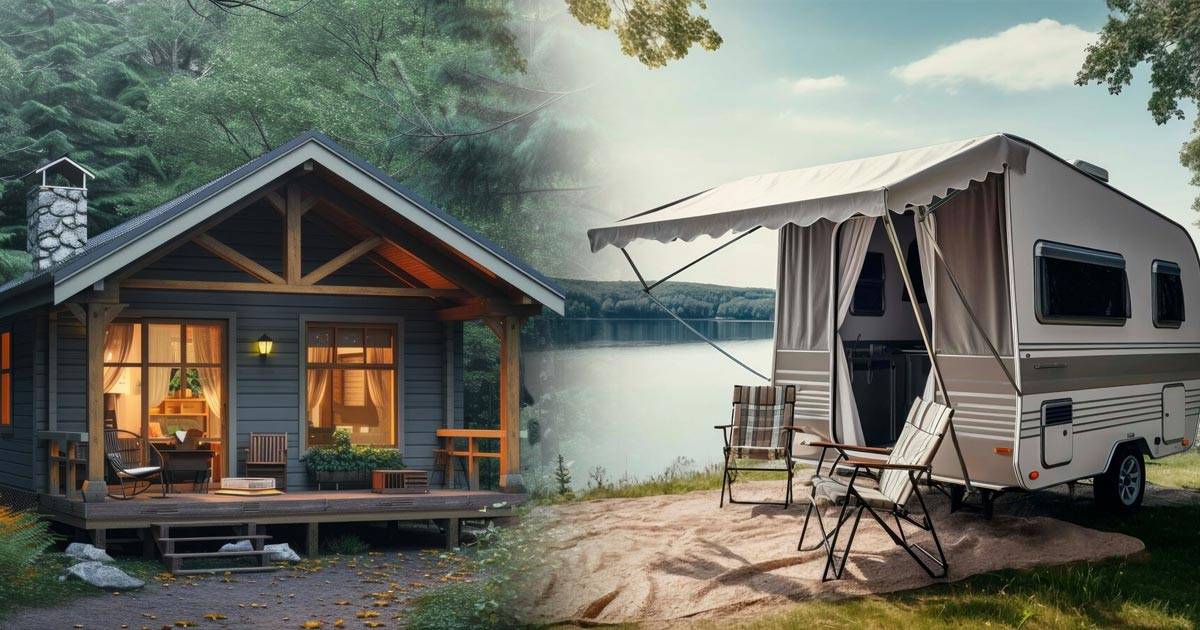Tiny Homes vs. Mobile Homes: What Sets Them Apart?

As housing options continue to evolve, tiny homes and mobile homes have gained popularity as affordable and flexible alternatives to traditional houses. Though similar in many ways, each option comes with its own set of benefits and trade-offs. Understanding the core distinctions can help determine which housing solution best suits your lifestyle and needs.
What is a Tiny Home?
A tiny home is a small, often minimalist residence that usually spans between 100 to 400 square feet. Designed for simple living, these homes typically prioritize eco-friendliness and efficiency. Many tiny homes are mobile, built on trailers to facilitate movement, while others are stationary, designed with off-the-grid living in mind. The charm of a tiny home lies in its compact size and customizability, offering residents a unique opportunity to design a highly personalized, sustainable living space.
What is a Mobile Home?
Mobile homes, or manufactured homes, are factory-built structures that are transported to their location for permanent setup. Though the name suggests portability, mobile homes are not designed for frequent relocation. They’re generally larger than tiny homes, ranging from 600 to 1,300 square feet, and are built according to HUD standards for manufactured housing. Affordable and practical, mobile homes can be found in communities or on private land and offer a more traditional housing experience with a bit more space than tiny homes.
Pros and Cons of Tiny Homes
While tiny homes appeal to those seeking a minimalist lifestyle, they also come with distinct advantages and limitations.
Pros:
- Lower utility costs
- Eco-friendly design options
- Customizable interiors
- Fast construction time
- Encourages outdoor living
Cons:
- Limited space for storage
- Zoning and legal challenges
- Reduced resale value
- Susceptible to extreme weather
- Less privacy in shared spaces
Pros and Cons of Mobile Homes
Mobile homes offer a spacious, cost-effective housing option for those who prioritize affordability and comfort. Here are some key points to consider:
Pros:
- Lower initial costs
- Larger size and multiple rooms
- Faster build and setup
- Higher accessibility to financing
- More accommodating for families
Cons:
- Depreciates over time
- Limited mobility
- External utility reliance
- Frequent zoning restrictions
- High park fees in some areas
What Sets a Tiny Home and a Mobile Home Apart?
Despite some similarities, the differences between tiny and mobile homes are significant, from the lifestyle they support to the costs involved. Below are some core distinctions that set each option apart.
Regulations:
Tiny homes often face zoning restrictions, especially if they’re on wheels, as many areas don’t categorize them as permanent dwellings. Mobile homes, meanwhile, follow HUD guidelines and are legally considered permanent housing, simplifying the permitting process but sometimes requiring that they be placed in designated mobile home parks.
Size:
Tiny homes are generally smaller, averaging around 100-400 square feet, which is ideal for individuals or couples. Mobile homes are much larger, typically between 600 to 1,300 square feet, making them suitable for families or those who prefer a bit more room.
Mobility:
While tiny homes on wheels are designed to be moved relatively easily, mobile homes, despite their name, aren’t truly mobile. Moving a mobile home requires professional assistance and often isn’t cost-effective due to the size and complexity of relocation.
Self-Sufficiency:
Tiny homes often appeal to those seeking a sustainable lifestyle, with options for solar panels, composting toilets, and rainwater collection. Mobile homes usually require connection to standard utilities, which can be a limitation for those interested in off-grid living.
Cost:
Tiny homes vary widely in price, with an average around $60,000, though highly customized designs can cost more. Mobile homes are generally more affordable, with new models starting around $25,000, but high-end versions can exceed $100,000. Maintenance costs, financing options, and park fees are important considerations for both options.
Use Cases:
Tiny homes are ideal for those interested in a minimalist lifestyle, with a strong focus on sustainability and freedom to move. Mobile homes, however, cater more to those who want affordable housing with a bit more space and don’t plan to move frequently.
Should You Live in a Mobile Home or Build a Tiny Home?
Choosing between a tiny home and a mobile home depends on personal lifestyle preferences, financial resources, and future goals. A tiny home is perfect for minimalists who want to reduce their carbon footprint, enjoy off-the-grid options, and embrace a smaller, often mobile space. For those who prioritize affordability, need more space, or are looking for a more permanent housing solution, a mobile home might be the better fit.
Finding the Right Fit for Your Lifestyle
Whether you’re drawn to the minimalist appeal of a tiny home or the spacious practicality of a mobile home, both options offer unique benefits that cater to different lifestyles. Consider your budget, location, and daily needs to make an informed decision about which alternative housing style will best support your vision for the future.
